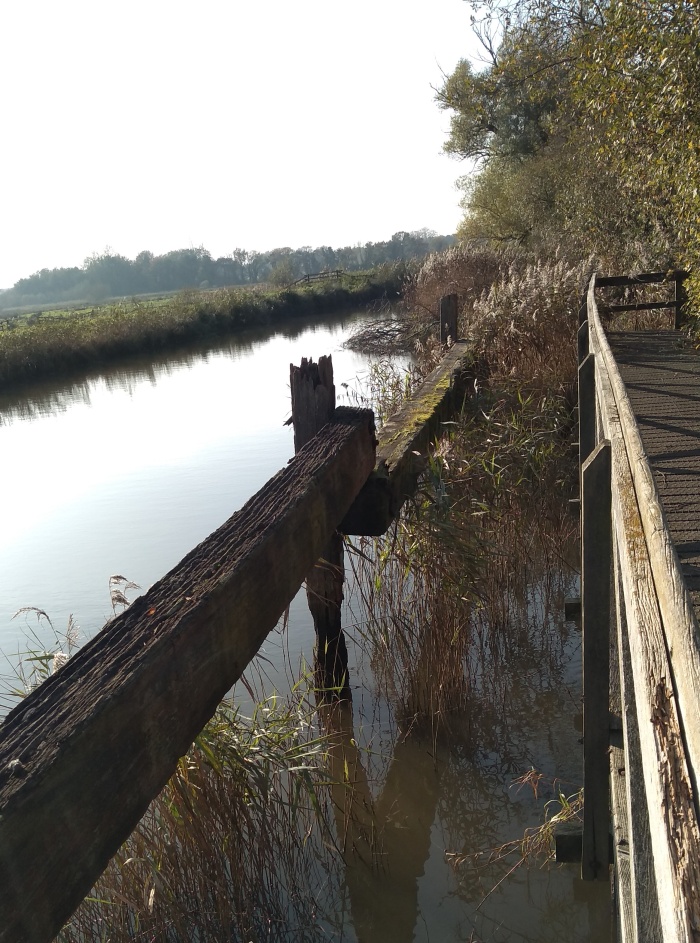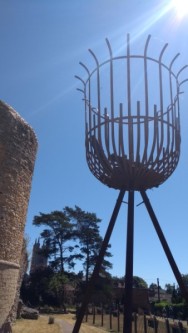The definition of boredom is cleaning out the bathroom extractor fan with an old toothbrush. Let’s face it, there’s only so much knick-knack dusting a boy can do when home alone. But I’m not yet ready for a meagre diet of daytime TV for the sofa-bound brain-dead – all idle chit-chat from nobodies about nothing. I know it’s only a matter of time before I too become glued to the box with a milky cuppa and a gingernut.
So I went for a walk. We’re fortunate to live close to water, not too close to worry about flooding – not yet anyway – but close enough for a rejuvenating stroll along the River Chet. The cottage is on the Wherryman’s Way, a series of long-distance paths linking Norwich with Great Yarmouth on the coast. The route is named after the north folk who worked the Norfolk wherries, small sailing barges that used to ply their trade along the waterways hereabouts ferrying people and cargo. All gone now of course, replaced by leisure boats for landlubbers.
June is a good time of year for old Ma Nature. She puts on her best show in exuberant emerald before, come August, she gets a bit frazzled and floppy.






On my walk I passed a small herd of grazing cattle. The white-faced bovine at the centre of the image above stared directly at me. I’ve seen that face before; I knew what she was thinking – come on then, if you think you’re hard enough. Memories of my last encounter with a white-faced alpha cow came flooding back. She was back and ready for another pop at me. Praise the Lord for the watery ditch between us.
Liam’s back tomorrow to save me from terminal tedium and mad cows.





























































